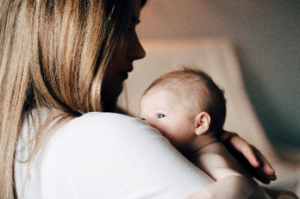A study from the University of Geneva analysed the effects of the COVID-19 pandemic on mothers’ postnatal depression, stress, and their attachment process with the baby. The results showed a trend of increased depression and stress symptoms in mothers during COVID-19, which also challenged the attachment process.
Higher levels of depression and anxiety are believed to be part of women’s birthing and post-partum experiences during the COVID-19 pandemic. Additionally, if a preterm baby requires hospitalisation, the mother faces not only the known stressors of premature birth but also the challenges of pandemic-related hospital-services changes and restrictions.
Little is known about the impact of the COVID-19 pandemic on maternal depression, stress, or on the attachment process with the child during the stay at the neonatology intensive care unit (NICU). By comparing the two periods, before and during the COVID-19 pandemic, a group of researchers from the University of Geneva aimed to analyse the effects of the pandemic on mothers’ postnatal depression, stress, and attachment.
Twenty mothers of very premature infants (<32 weeks gestational age) were recruited between January 2018 and February 2020 and screened shortly after the infant’s birth for postnatal depression using the Edinburgh Postnatal Depression Scale (EPDS). A threshold for at “risk mothers” was applied for scores ≥10. Furthermore, two other questionnaires were administered; the Parental Stressor Scale: Neonatal Intensive Care Unit and the Maternal Postnatal Attachment Scale. A score of ≥3 was used to identify high parental stress, and a higher score of MPAS represented greater attachment. The same was done with fourteen mothers recruited during the COVID-19 pandemic. The numbers of “at risk mothers” were then compared in the two groups.Results showed no significant differences in the depression, stress, and attachment levels between the two groups. Nevertheless, a trend indicated a general rise of depression and stress symptoms in mothers during the pandemic. Trends in the results show that depression levels and stress from the environment were more strongly associated with difficulties in attachment during the COVID-19 period.
Protective actions, such as infant and family-centred developmental care, can support the important parent-infant attachment process. The use of technological devices and single family-rooms are further recommendations to contain the negative impact of the COVID pandemic.
Paper available at: Frontiers in Psychology
Full list of authors: Filippa Manuela, Francisca Barcos-Munoz, Maria Grazia Monaci, Lara Lordier, Maricé Pereira Camejo, Joana Sa De Almeida, Didier Grandjean, Petra S. Hüppi and Cristina Borradori-Tolsa


